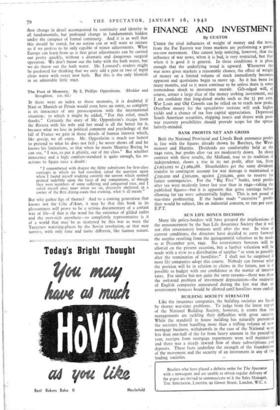IF there were an index to these memoirs, it is
doubtful if Nazi or Munich or Petain would even have an entry, so complete is its innocence of any preoccupation with the international situation : to which it might be added, "For this relief, much thanks." Certainly the story of Mr. Oppenheim's escape from the Riviera with his wife and her maid is all the better for it, because what we lose in political comment and psychology of the fall of France we gain in those details of human interest which, like gossip, we all enjoy. Mr. Oppenheim is much too honest to pretend to what he does not feel ; he never shows off and he knows his limitations, so that when he meets Maurice Baring he can say, "I was, to put it plainly, out of my class." But whether innocence and a high comfort-standard is quite enough, his re- actions to Spain raise a doubt : "I remembered with disgust the filthy substitutes for first-class carriages in which we had travelled, asked the question again when I found myself studying covertly the sorrow which seemed printed indelibly upon the laces of my companions, as though they were members of some suffering and conquered race, and I asked myself once morr when we sat, discreetly sheltered, in a corner of the Ritz dining-room that evening, what it all meant."
But why gather figs of thorns? And to a coming generation that knows not the Cote d'Azur, it may be that this book in its pleasantness will prove to be a serious documentary of a certain way of life—if that is the word for the existence of gilded exiles and the over-rich anywhere—so completely representative is it of a world that may be as shattered by this war as were the Turgenev watering-places by the Soviet revolution, or that may survive, with only time and name different, like human nature.


























 Previous page
Previous page